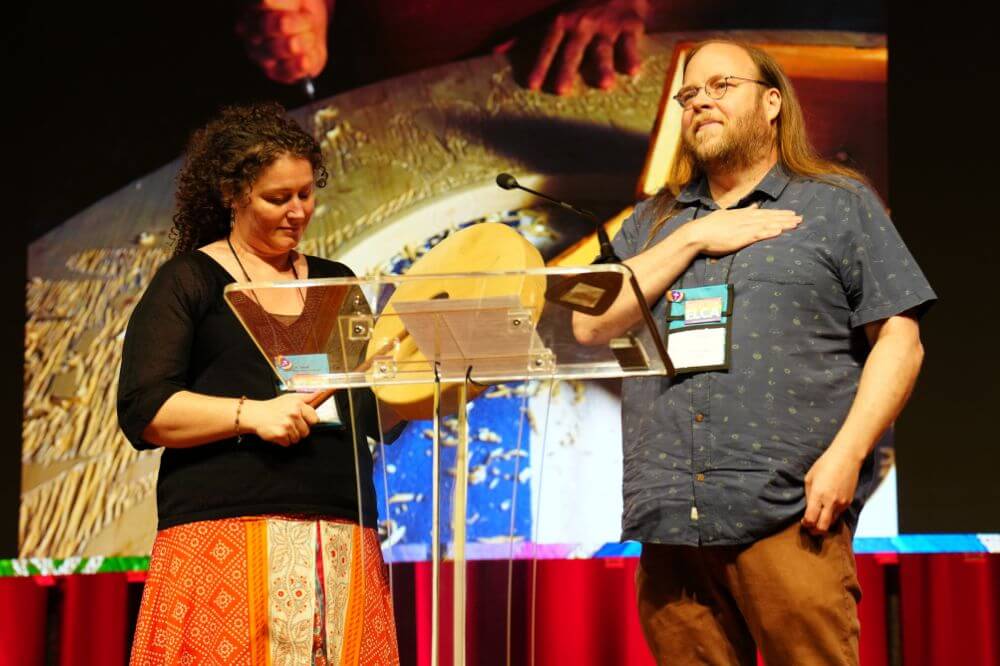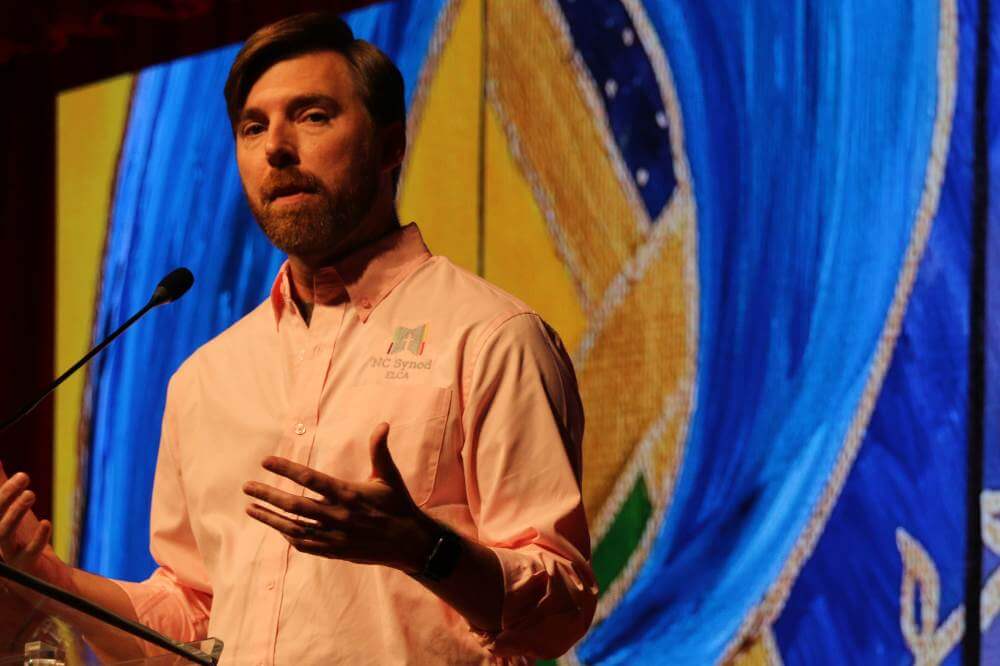Credit: Todd Godwin, member of St. John’s, Salisbury, for the NC Synod
Therefore, if anyone is in Christ, the new creation has come: The old has gone, the new is here! All this is from God, who reconciled us to himself through Christ and gave us the ministry of reconciliation: that God was reconciling the world to himself in Christ, not counting people’s sins against them. And he has committed to us the message of reconciliation. We are therefore Christ’s ambassadors, as though God were making his appeal through us. We implore you on Christ’s behalf: be reconciled to God. 2 Corinthians 5:17-20
“God’s deep desire is to reconcile all relationships—with each other and creation. We will actively strive to experience the fullness of God through radical welcome, diversity, justice, compassion, peacemaking, advocacy, and healing.” NC Synod Core Values: Reconciliation
NC Synod Assembly’s theme, “Who Do You Say That I Am?,” explored the NC Synod Core Values. Individuals from across the synod shared how Jesus is revealed in each of the core values. On Saturday, June 3, Tom Eure and Amelia Osborne, members of Morning Star in Matthews, spoke to the synod’s core value of Reconciliation.
Last year, the ELCA American Indian/Alaska Native Association invited congregations to hang an orange cloth for 225 days in remembrance of the Native children who never made it home from boarding school. Tom and Amelia prayerfully met with other members of their congregation and decided to create a piece of art, inspired by Andy Everson’s artwork for the “Every Child Matters” campaign, to honor the lives of those children. Amelia explained that the orange cloth and art installation was something that got people’s attention and began discussions that have led their congregation and others into action, “As the church, we get to own that story, and now we get to do better together.”
As part of The Indigenous Learning Team, Tom and Amelia took part in creating a monthly email newsletter that shared resources and learning material in the North Carolina Synod for 12 months based on topics provided by the ELCA American Indian/Alaska Native Association. Amelia invited the assembly to learn more on the synod website and offered the NC Synod Indigenous Learning Team as a resource for learning more and creating a land acknowledgment.
Tom shared Morning Star’s process of forming a land acknowledgment, commenting that they could be performative but they are a good place to start the process of reconciliation. Morning Star is located on the lands of the Catawba nation, so they reached out to the Catawba people and invited them to take part in forming their land acknowledgment.
In addition to leading a well-attended faith formation class, Morning Star’s new friends invited them to think about their own relationship with the land, “What do you get from the land? What do you love about the land? What are your feelings when you take a deep breath here on this land?” Tom said, “They came to us in such a loving way into the healing process with them.”
In addition to their work with the Indigenous Learning Team, Tom and Amelia are partners in Inspired Arts and Sound, which provides faith-based music and art programming where they lead folks across the state in exercises of love through art. This project led them to start the Gallery at Morning Star, where they can celebrate the people in their community. “We have people who don’t look like us. People who don’t worship like us,” Tom said.
To sum up their experience with reconciliation, Tom quoted Pastor John Pavlovitz, “We have a one-word job description as Christians, and that’s LOVE.” Then, they invited each person in the assembly to place their hand on their hearts, patting to the beat of the music as they sang—creating a unifying heartbeat throughout the room.
Editor’s Note: Savvy and seasoned synod web post readers will recognize the song they sang, “Love Compels Us To,” as Tom’s original song celebrating the ELCA’s God’s Work. Our Hands. Sunday and the work that ELCA Lutherans do in service annually on that day.
Attribution:
Synod Staff



